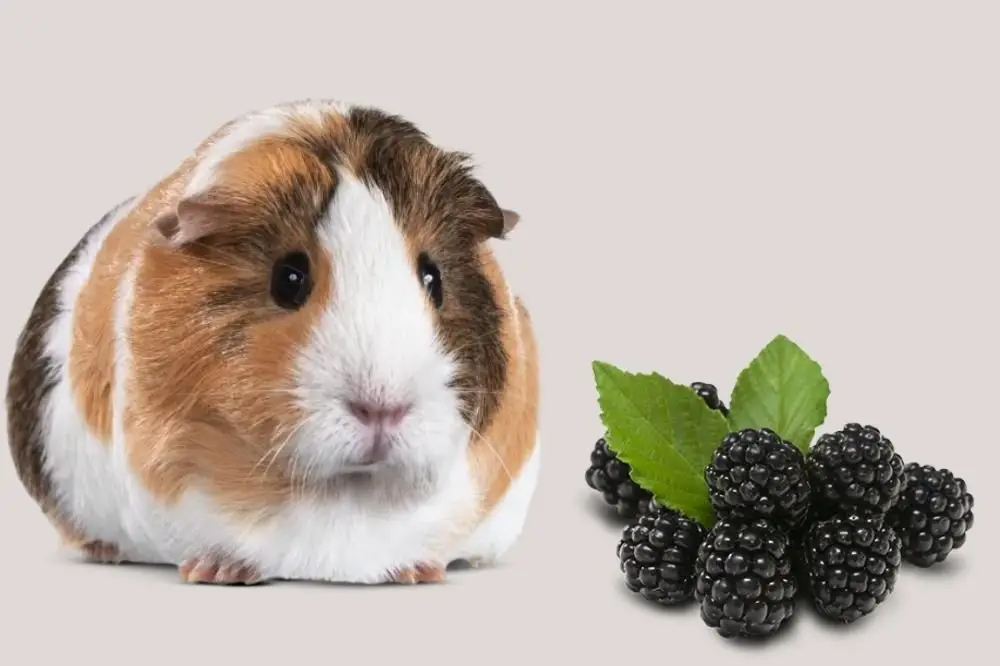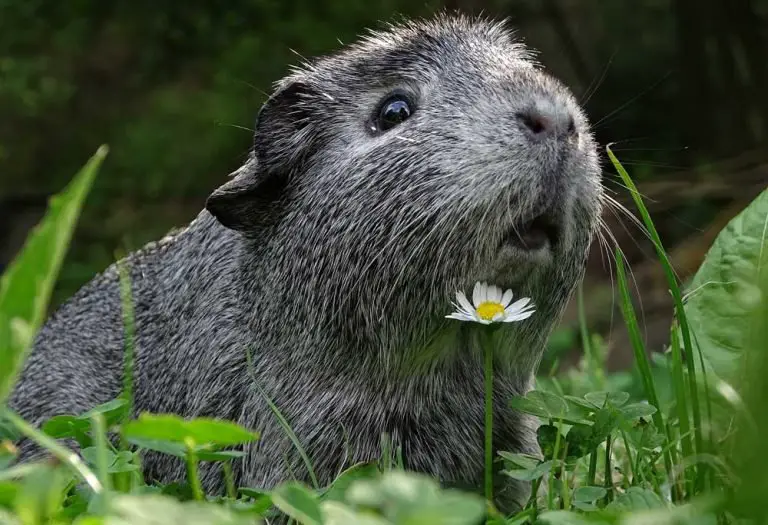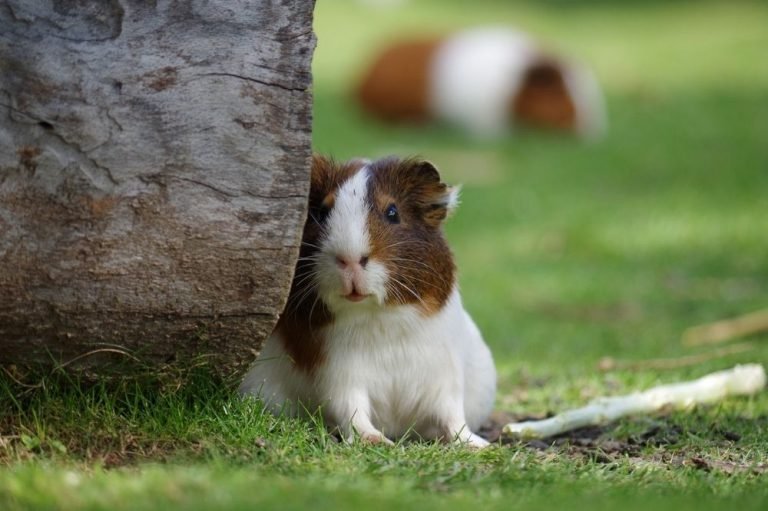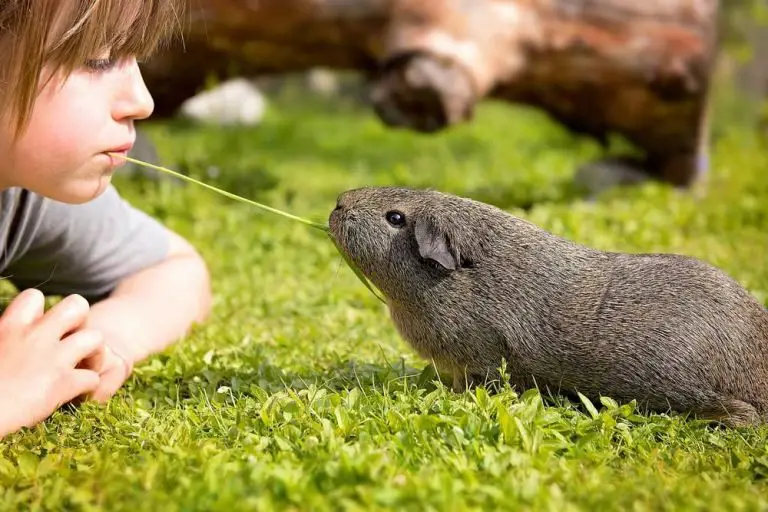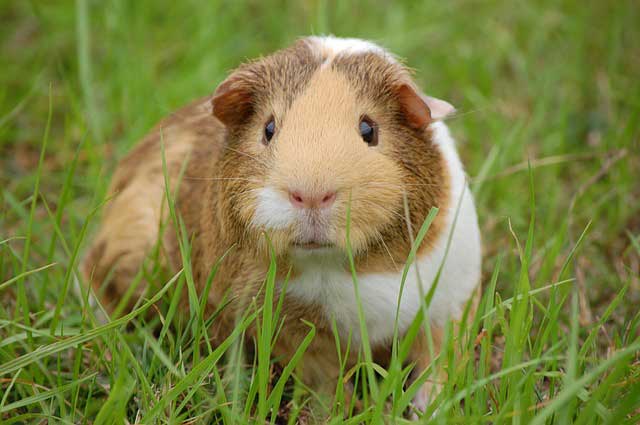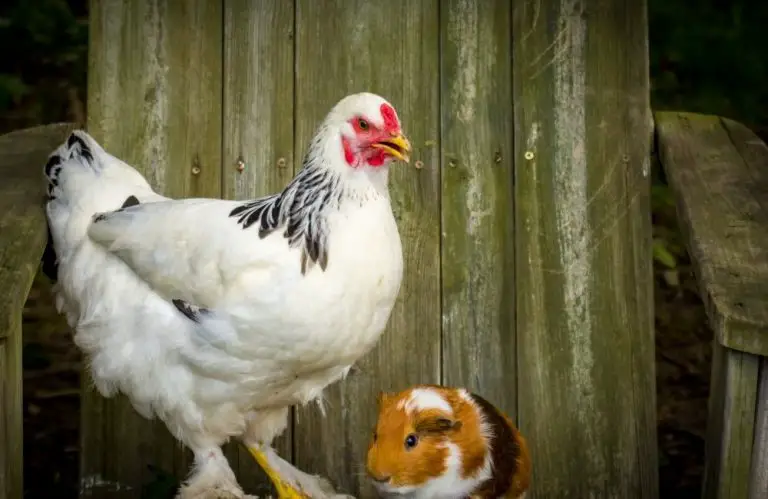Can Guinea Pigs Eat Blackberries?
Blackberries are dark purple fruits that are more of aggregate fruits than they are berries. They are similar to raspberries and strawberries.
The fruits are juicy and a favorite to many people. Their deep purple colour comes from the presence of antioxidants called anthocyanins.
Blackberries are usually red when unripe which brought about the saying that blackberries are red when green.
Being a healthy fruit that is quite common, you may have thought of including it in your pet’s diet as a treat or just to mix it up with their foods.
But are they safe for guinea pigs? Let’s find out.
Can guinea pigs eat blackberries?
Guinea pigs can eat blackberries. They are highly nutritious and delicious fruits that would make a great addition to their diet. Blackberries are rich in Vitamin C which prevents scurvy, fiber which prevents constipation, Vitamin A which aids in vision, potassium which stimulates growth, and antioxidants that fight free radicals. However, blackberries should be offered in moderation because they contain a lot of sugar which is harmful to the health of guinea pigs.
Do guinea pigs like blackberries?
Guinea pigs like blackberries because they have a sweet tooth and the fruits are very tasty. They are also very juicy and your pet will wheek and popcorn for more when they have had a taste.
Benefits of feeding blackberries to guinea pigs
Blackberries are packed with nutrients that are healthy for your pet. The nutrients include:
Vitamin C
Guinea pigs are unable to produce their own Vitamin C. This will require you to ensure that you offer them foods rich in the vitamin so as to prevent its deficiency.
Deficiency of Vitamin C brings about Scurvy, a disease that affects bones, joints, and skin. Guinea pigs are susceptible to it and it’s usually very painful and fatal at the same time.
Vitamin C boosts a guinea pig’s immune system and aids in the fast healing of wounds.
Vitamin A
Blackberries have Vitamin A which boosts the immune system and helps fight off diseases. It’s also vital in boosting the health and eye vision of guinea pigs who don’t naturally have good eyesight.
Fiber
Dietary fiber is necessary for smooth digestion in guinea pigs because they have a sensitive stomach. Fiber provides roughage which prevents constipation.
Blackberries contain soluble fiber too that helps in lowering blood sugar levels.
Potassium
Potassium is an important mineral that performs various functions in the body. It stimulates growth and reduces blood pressure.
Potassium also works in reducing both calcium and phosphorus concentrations that bring about the formation of kidney stones. Potassium has been shown to increase the survival rate and lower mortality rate in guinea pigs.
Antioxidants
Blackberries contain antioxidants that fight free radicals and prevent both heart conditions and cancer.
Manganese
Manganese is a nutrient that enhances heart functionality and maintains the body’s blood sugar.
High water content
Blackberries have 88% water content making them highly hydrating for your pet.
Vitamin K
Vitamin K helps in the clotting of blood in the instances your guinea pig gets injured and begins bleeding.
Calcium
Calcium is important for young and pregnant guinea pigs as it helps in the growth of strong bones.
Effects of feeding blackberries to guinea pigs
Blackberries have nutritious properties for a guinea pig’s health but they also have negative effects when fed in large quantities.
Blackberries contain high amounts of sugar which bring about health issues like:
Obesity
High sugar content leads to weight gain in guinea pigs. This will eventually bring about an obese pet.
Obese guinea pigs will have problems with their movements, grooming, and general health.
Diabetes
High sugar levels lead to diabetes in guinea pigs. Signs of diabetes include frequent urination, a big appetite, and weight loss.
If you notice these signs you should see a vet to ascertain if your pet has diabetes to begin treatment right away.
Digestion problems
Guinea pigs have a delicate stomach and digestive tract. High sugar content will bring about stomach upsets in them and affect their normal digestion process. It could also lead to diarrhoea and watery stool in your pet.
Dental problems
Guinea pigs have teeth that grow all through their life. The teeth are prone to overgrowing if they are not worn down by constant chewing.
Dental problems in guinea pigs are painful and feeding your pet with high sugar foods will only make it worse. The sugar leads to teeth damage and should be moderated.
Can guinea pigs eat blackberry leaves?
Guinea pigs can eat blackberry leaves as they are nutritious and they love the green leafy parts of plants. Ensure that you are offering fresh soft leaves and not the tough old leaves.
It’s better if you are plucking them from your garden. If not, wash them carefully to get rid of chemicals, pesticides, and bacteria.
How to feed blackberries to guinea pigs
Blackberries should be fed when ripe and seemingly black other than when they are red and unripe. They are sweeter and juicier when ripe.
Ensure that you wash them thoroughly first. They are small in size but two are enough for your pet and you can slice them into even smaller pieces to avoid choking.
Due to their high sugar content, offer the fruit two to three times per week to avoid making your pet sick. Do not be tempted to offer more for the sake of their health no matter how loud they wheek for more.
Do not give the fruit on the same day as other sweet fruits because that sugar will be enough for the day.
Avoid blackberry jams, juices, and any other by-products because they are concentrated with high sugar content that is harmful to your pet. The fresh fruits are sufficient for them.
Conclusion
Blackberries are juicy delicious fruits that your guinea pig will love. You can offer them as treats or mix them up with vegetables.
They aid in digestion, boost the immune system, reduce blood pressure, and stimulate growth.
Due to their high sugar content, they should be fed in moderation.

